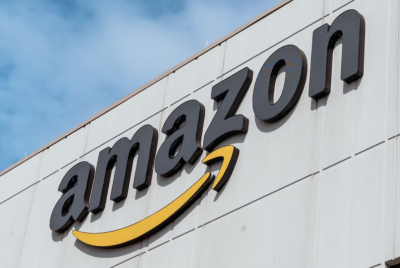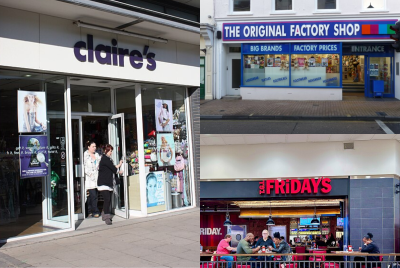UK factories receive millions in funding to improve energy efficiency and push towards net zero by 2050
UK government's IETF has granted £24.3 million to top UK energy-intensive firms to help them improve their energy efficiency and reduce carbon emissions.

As the world contends with the devastating impacts of climate change, the UK has taken a decisive step towards reducing its carbon footprint. Over 70 per cent of the country's industrial emissions come from energy-intensive industries, highlighting the urgent need for action.
To address this issue, the UK government has launched the Industrial Energy Transformation Fund (IETF), providing funding to support energy-intensive firms in their efforts to increase energy efficiency and cut carbon emissions. With the allocation of £24.3 million, some of the country's biggest firms are set to benefit from this initiative. The allocation of this funding takes the total amount given to firms through the IETF up to £61.4 million.
An environmental, social and governance analyst at Hargreaves Lansdown, Laura Hoy, recently said the "green economy" and "net zero" emissions target needed to be key priorities in the Spring Budget announcement back in March. She noted the government must use the new budget to push towards net zero in order to position the UK economy for success in the future.
The British government promised to provide assistance to factories that make some of the most popular beers, cereals, soft drinks, and automobiles in the nation in an effort to minimise their costs and lower carbon emissions.
Popular businesses around the UK including Kellogg's, Heineken, Toyota and Britvic, among others, will get a portion of £24.3 million in government money to assist in cleaning up their production procedures and increase their energy efficiency.
What is IETF?
The IETF was launched in 2018 and it's one of the UK government's initiatives to cut the nation's overall energy consumption by 15 per cent by 2030, in addition to the country's goal of achieving greater energy independence. The funding helps companies that use a lot of energy reduce their use of fossil fuels while utilising cutting-edge low-carbon solutions. The government provided financing of £315 million, accessible until 2027, and Phase 3 will take place in early 2024, with support for UK businesses totalling £185 million.
A prominent recipient of the British government's IETF is Manchester Brewery of Heineken, which will receive £3.7 million in upgrades, including technology to collect waste heat from the refrigeration systems used to cool its beer.
Speaking on this, Matt Callan, Senior Director of Supply Chain at Heineken UK, said they are happy to have ambitious goals for lowering their carbon footprint, both inside their operations and throughout their entire value chain.
He emphasised that they have been passionate about having a positive influence for more than 150 years, and now more than ever, it is obvious that they must act immediately to cut carbon emissions.
Commenting on what the investment and IETF money provided by the government will do, Callan said it would enable them to respond more quickly while also adding that with the aid of their partners and colleagues, they will raise the standard at their Manchester Brewery to brew their beers more sustainably.
Also, more than £282,000 will be given to Toyota in Derby to develop new airless paint sprayers that use static electricity rather than air to use less energy.
At its facility in East London, where it manufactures beverages like Tango and Robinsons, Britvic Soft Drinks will use £4.4 million it will receive to develop innovative technology, including a heat recovery system and a low-temperature hot water network.
Sarah Webster, Britvic's Director of Sustainable Business, said they are passionate about achieving their goal of reaching net zero by 2050, adding that they are thrilled to have decreased their direct emissions by over 30 per cent since 2017.
To advance more quickly, she noted that everyone must join hands together.
On how the IETF will assist their business, Webster said it would aid in further reducing their carbon emissions at their cherished London facility by 50 per cent, in addition to their sustainable investment program. She noted that it would help their team members, the neighbourhood, clients, and customers feel more confident that they take their environmental obligations seriously.
Tate and Lyle Sugars, a company that supplies nearly half of the sugar and syrup on UK supermarket shelves, will receive around £71,800 to investigate ways to utilise less natural gas at its Thames Refinery.
Funding will be provided to Kellogg's in Wrexham for a study examining the viability of recovering waste heat from their cereal manufacturing processes to lower their gas use.
According to Phil Makin, Technical Development Manager at Kellogg UK, the IETF enables their Wrexham plant to generate future sustainability savings and benefits while reducing their overall carbon footprint and advancing Kellogg's 2030 carbon-neutral ambition.
Other recipients of the fund include Ardagh Glass Limited in Doncaster, Mitsubishi Chemicals UK, Naylor Industries in Barnsley, Wienerberger Limited in Doncaster, Basell Polyolefins UK, Ibstock Brick Limited, a leading UK manufacturer of clay and concrete building products in Pulborough, West Sussex, GKN Aerospace Services in Filton near Bristol, North Wales, Natural World Products (NWP) in Dunmurry, FP McCann Limited.
Meanwhile, Lord Callanan, Minister for Energy Efficiency, highlighted that the UK is leading the world in achieving net zero, reducing emissions by 48 per cent. However, he emphasised that to maintain this progress, the country must transform its industrial sectors, as some of the sectors most important to the economy are also those with the highest emissions.
The minister noted that the government plans to future-proof the aforementioned sectors by providing funding to assist them in improving their energy efficiency and reducing carbon emissions. This ultimately allows the sectors to flourish and preserve the thousands of jobs they provide across the nation by lowering their energy costs and increasing their competitiveness on the global stage.
The IETF's Phase 3 funding will be crucial in helping energy-intensive businesses cut costs, and reduce carbon emissions. The funding demonstrates the government's commitment to achieving net-zero carbon emissions by 2050 and could help various British factories transition towards a sustainable and low-carbon future.
© Copyright IBTimes 2025. All rights reserved.





















